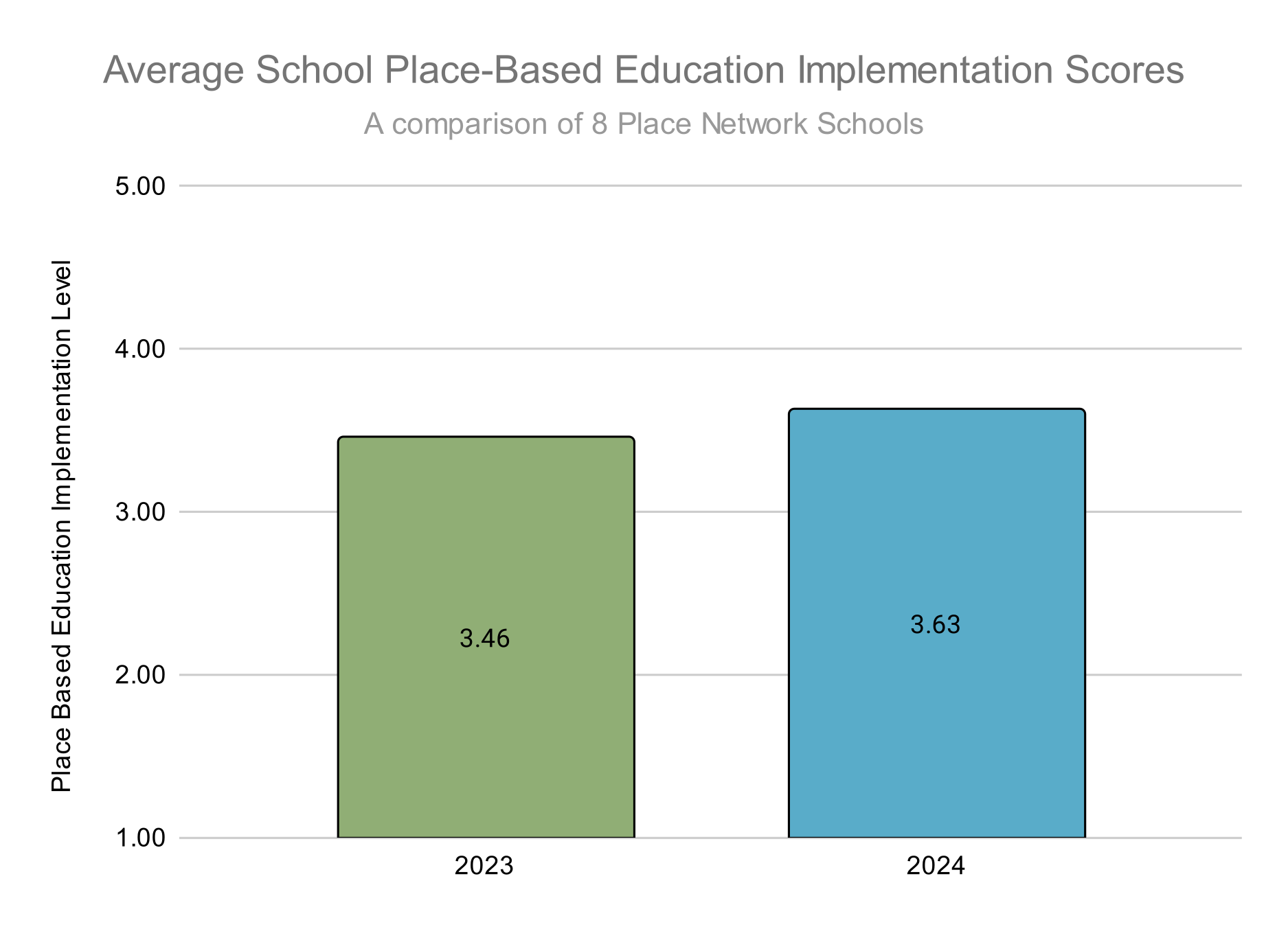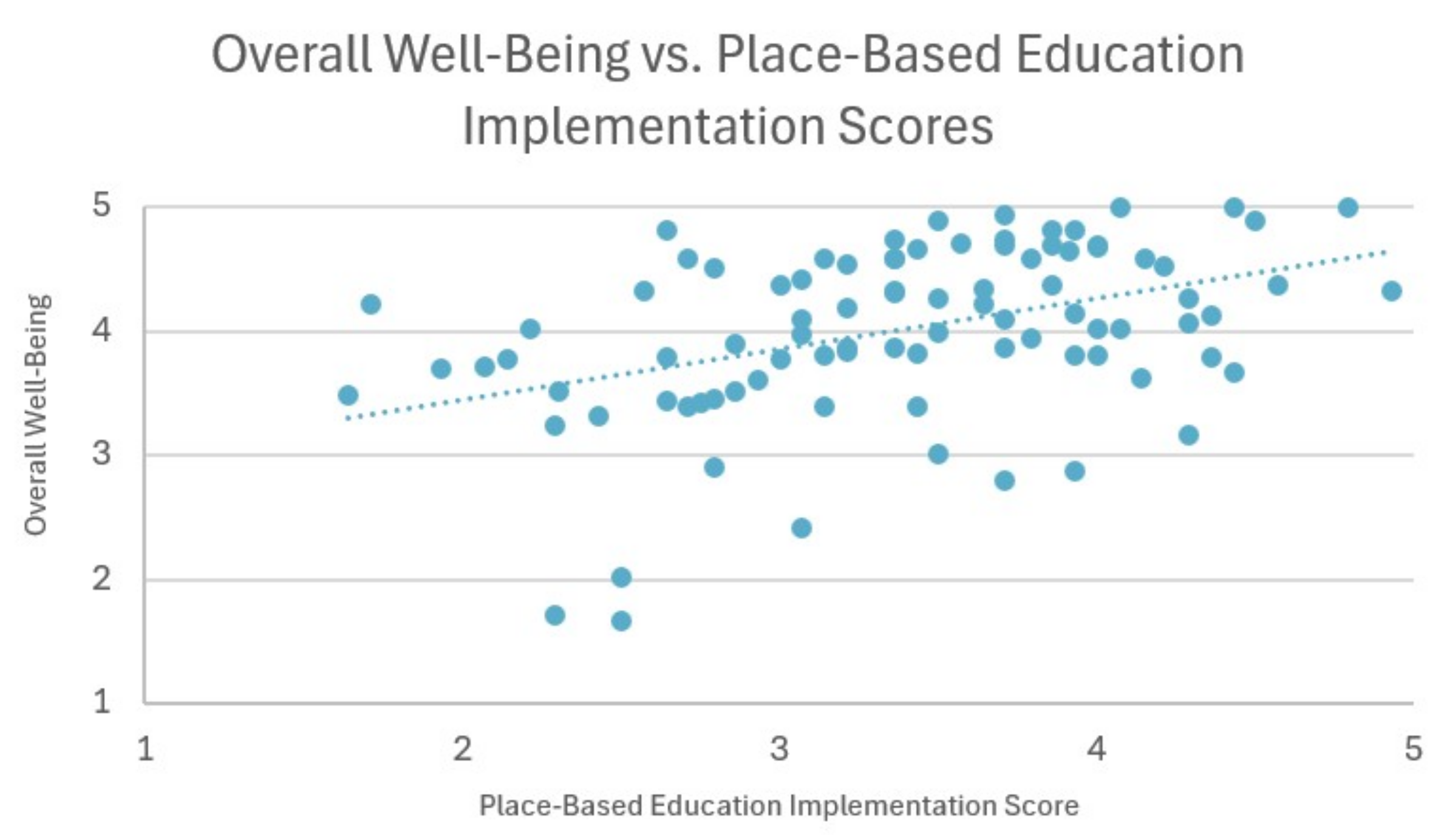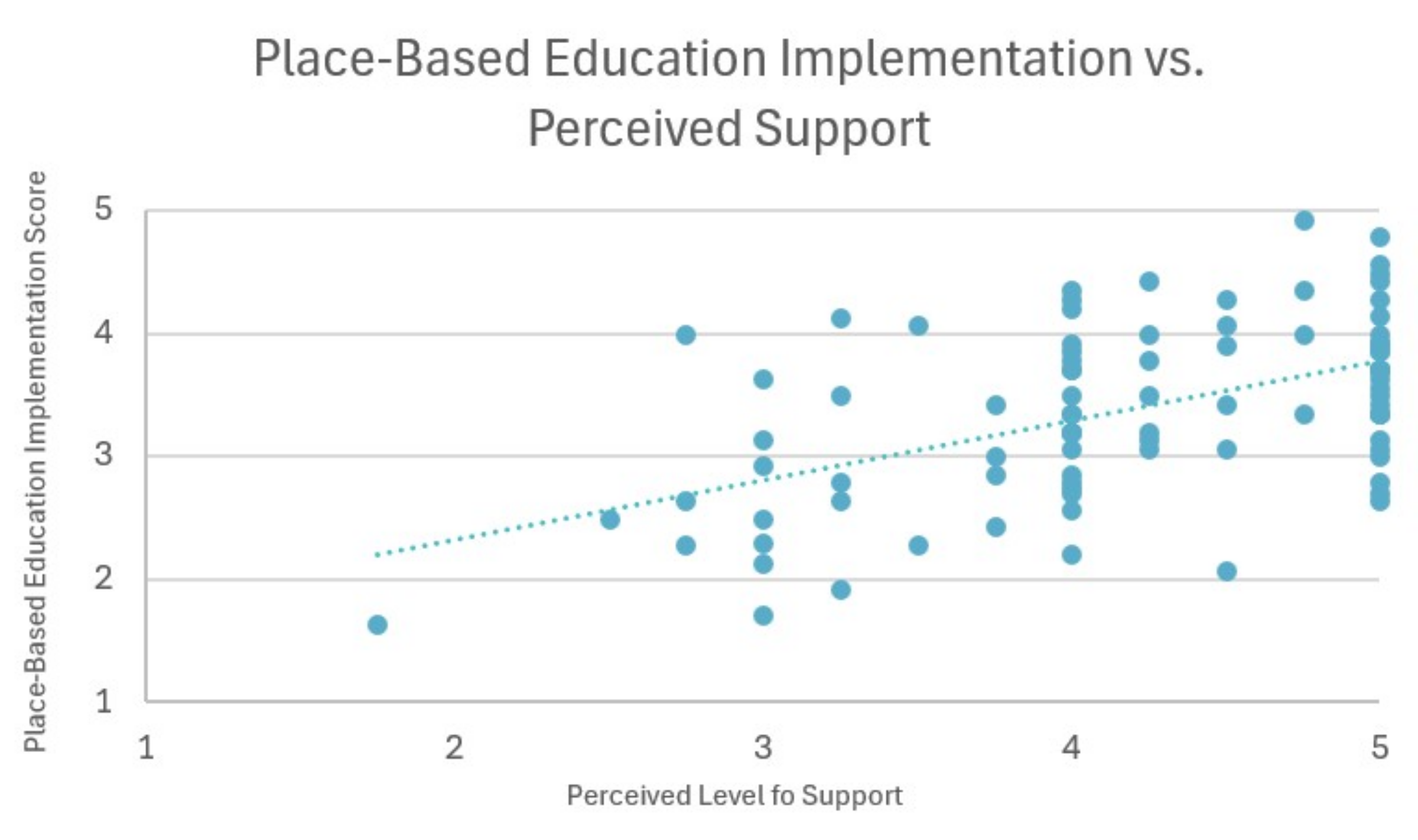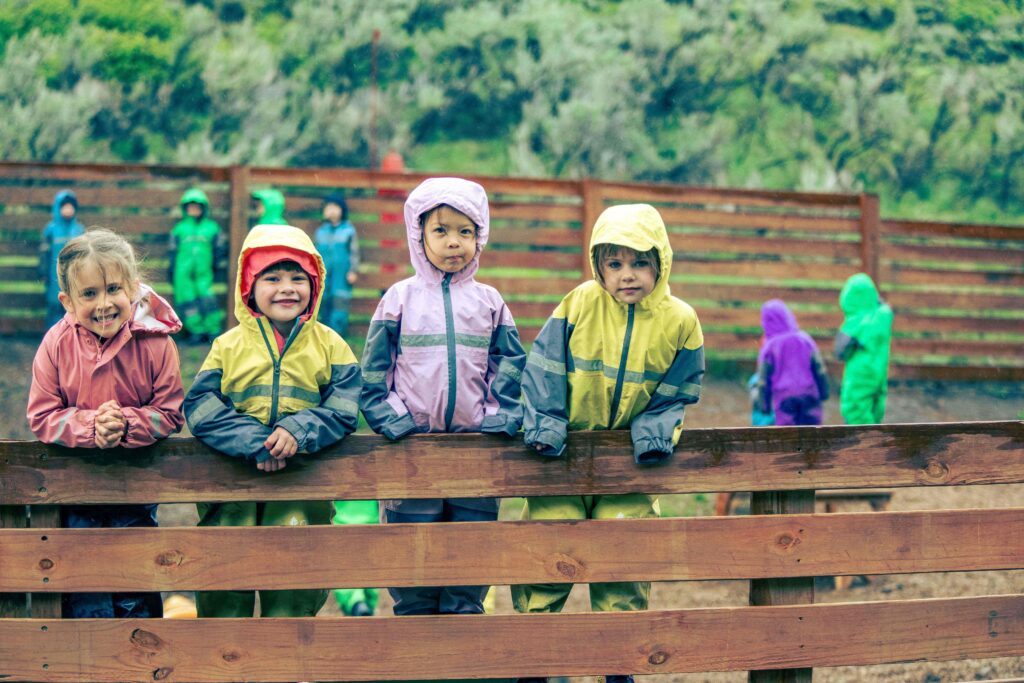At Teton Science Schools, we believe that place-based education has the potential to connect learning and communities in ways that foster student and educator engagement, improve academic outcomes, and create lasting school and community impacts. Our program uses a series of surveys administered throughout the year to get a pulse on this important data.
This year, our evaluation of the Place Network—a collaborative network of K-12 schools dedicated to implementing a place-based approach—revealed encouraging trends and meaningful correlations that highlight the power of this educational approach.
Schools Are Strengthening Their Place-Based Practices

Over the past year, a majority of schools participating in the Place Network have reported measurable growth in their place-based implementation. This improvement, tracked through annual surveys and reviewed in collaborative partnership meetings, reflects schools’ increased capacity to integrate local contexts, community partnerships, and student-driven inquiry into their curricula. These efforts underscore the dedication of educators and school leaders to creating meaningful learning experiences rooted in the places students call home.
Place-Based Education and Teacher Well-Being: A Promising Relationship

One of the most compelling findings from this year’s data is the positive correlation between teacher well-being and the degree of reported place-based education implementation. Teachers who implemented more place-based practices reported higher levels of well-being, including stronger student-teacher relationships, greater teaching self-efficacy, and more positive emotions. Supporting this connection, approximately 65% of responding teachers indicated that PBE positively impacts their well-being, while 32% expressed a neutral response.
These results suggest that as teachers engage more deeply with place-based education, they may experience more professional and personal fulfillment. Designing meaningful, place-connected learning experiences can foster stronger connections with students and communities, which, in turn, may enhance teachers’ overall well-being. While this relationship is likely complex and reciprocal, the findings highlight the importance of creating supportive environments that empower educators to innovate and thrive.
Administrative Support Is Key to Successful PBE

Another noteworthy trend this year is the strong positive correlation between teachers’ perceived levels of administrative support and their place-based implementation scores. Teachers who felt their school leadership provided resources, established sustainable systems, and allocated time to engage in planning place-based teaching were more likely to excel in implementing these approaches. This finding highlights the critical role of school leaders in fostering a culture that values and supports innovative teaching practices.
Looking Ahead: A Commitment to Continuous Learning
At Teton Science Schools, we are committed to rigorous and transparent evaluation practices. These results, while not definitive proof, illuminate meaningful trends in how the Place Network model is influencing schools, educators, and students. By fostering stronger connections between learning and place, we aim to inspire future-ready learners who are deeply engaged with their communities and the natural world.
Stay tuned for more insights and stories from the Place Network, and thank you for joining us on this journey towards transformative education, one place at a time.
For more information on the Place Network or to explore how your school can benefit from place-based education, visit Teton Science Schools.


